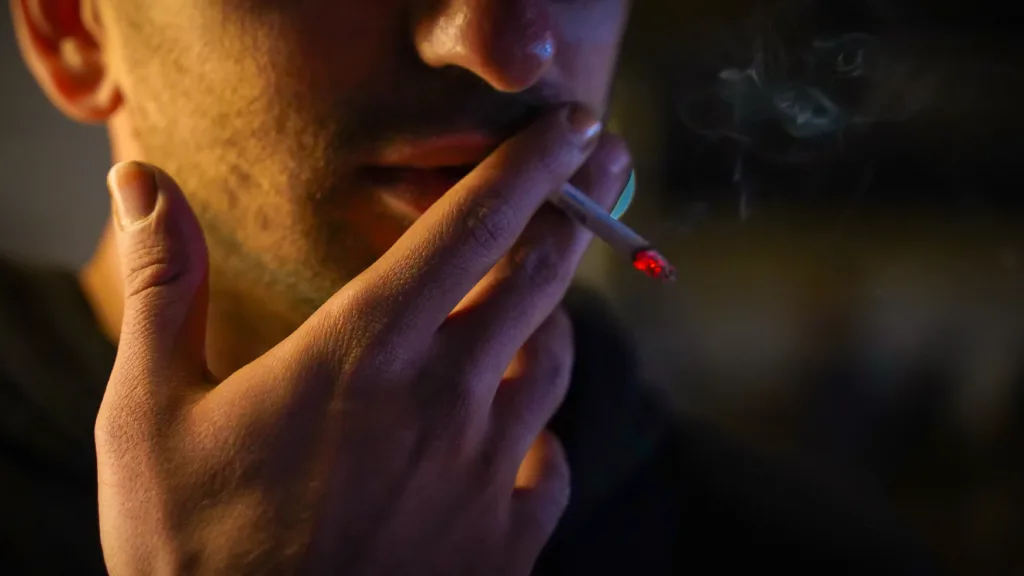Cannabinoid Hyperemesis Syndrome (CHS) is a condition that affects some individuals who use cannabis products regularly. CHS is characterized by symptoms such as nausea, vomiting, and abdominal pain. These symptoms can be severe and debilitating, making it difficult for people to carry out their daily routine.
The only way to treat CHS is to stop using all cannabis products. While this may seem like a simple solution, it can be challenging for people who use cannabis products regularly. However, the good news is that most people with CHS who stop using cannabis have relief from symptoms within 10 days.
It’s important to note that recovery time can vary from person to person. For some people, it may take a few weeks to feel better, while others may take a few months. During this time, it’s essential to take care of yourself by eating healthy foods, staying hydrated, and getting plenty of rest.
Research has shown that the brain receptors called cannabinoid 1 receptors start to return to normal after 2 days wthout marijuana. These receptors regain normal functioning within 4 weeks of stopping the drug. This means that the body can start to heal and recover from the effects of long-term cannabis use.
Even after quitting cannabis products, you may still experience symptoms and side effects for a few weeks. These symptoms may include anxiety, depression, and insomnia. It’s essential to seek medical attention if these symptoms persist or worsen over time.
CHS is a serious condition that can be challenging to manage. The only way to stop CHS symptoms is to completely stop using all marijuana products. Recovery time can vary, but most people will experience relief from symptoms within 10 days. Taking care of yourself during this time is essential for a full and healthy recovery.
Effects of Stopping CHS
Cannabis Hyperemesis Syndrome (CHS) refers to a condition whre cannabis use leads to severe nausea, vomiting, and abdominal pain. The symptoms of CHS can last for several days or weeks, and it may take some time to fully recover after stopping cannabis use.
The duration of CHS symptoms after stopping cannabis use can vary from person to person. Generally, people who stop using cannabis may experience relief from symptoms within 10 days. However, some people may take longer to recover and may experience symptoms for a few weeks or even months after stopping cannabis use.
During the recovery period, it is important to take steps to manage symptoms and promote healing. This may include staying hydrated, eating small, frequent meals, and avoiding triggers that can worsen symptoms, such as hot showers or baths.
In some cases, medical intervention may be necessary to manage severe symptoms of CHS. Treatment may involve intravenous fluids, anti-nausea medications, and other supportive measures to help the body recover.
It is important to note that the best way to prevent CHS is to avoid cannabis use altogether. If you are experiencing symptoms of CHS, it is important to seek medical attention and stop using cannabis to promote healing and prevent further complications.

Return Time of Cannabinoid Receptors to Normal
Cannabinoid 1 receptors are an important part of our brain’s endocannabinoid system, which is responsible for regulating various physiological and psychological processes. When we consume marijuana or other cannabis products, the THC in these substances binds to these receptors and activates them, leading to the euphoric and psychoactive effects associated with marijuana use.
However, prolonged use of marijuana can lead to desensitization and downregulation of these receptors, which means they become less sensitive and feer in number. This can have various negative effects on our physical and mental health.
Fortunately, research has shown that these changes are not permanent and can be reversed with abstinence from marijuana use. Studies have found that cannabinoid 1 receptors start to return to normal after two days of abstinence, and they regain normal functioning within four weeks of stopping the drug.
During this period, it’s important to engage in healthy habits such as exercise, good nutrition, and stress management to support the body’s natural healing processes. Additionally, seeking professional help and support from a medical or mental health professional can be beneficial for individuals struggling with addiction or withdrawal symptoms.
Cannabinoid 1 receptors can return to normal within four weeks of stopping marijuana use, and adopting healthy habits and seeking professional support can aid in the recovery process.
Can Permanent CHS Be Achieved?
Cannabinoid hyperemesis syndrome (CHS) is a condition that is brought on by frequent and long-term marijuana use. The symptoms of CHS can be severe and include nausea, vomiting, and abdominal pain. It is a relatively new condition that was first identified in the late 2000s.
One of the most common questions people have abut CHS is whether it is permanent. The answer to this question is no, CHS is not permanent. However, the only way to stop CHS symptoms is to completely stop using all marijuana products.
After you quit using marijuana, you may still have symptoms and side effects for a few weeks. This is because marijuana stays in your system for a while, and it takes time for your body to adjust to not having it. Some of the symptoms you may experience during this time include anxiety, depression, and trouble sleeping.
Over time, your symptoms will go away as your body adjusts to not having marijuana in your system. It is important to note that if you start using marijuana again, your CHS symptoms will likely return. Therefore, it is essential to avoid using marijuana to prevent CHS from returning.
CHS is not permanent, but it can be a challenging condition to manage. The key to preventing CHS symptoms is to stop using all marijuana products and to avoid using them in the future. If you are experiencing CHS symptoms, it is important to seek medical attention to manage your symptoms and to discuss treatment options with your healthcare provider.
Can CHS Patients Smoke Again?
If you are suffering from Cannabinoid Hyperemesis Syndrome (CHS), it is important to understand that continued cannabis use can worsen your symptoms. CHS is a condition characterized by cyclical vomiting and nausea, and it is caused by prolonged cannabis use. CHS is often treated by stopping the use of THC, the psychoactive compound found in cannabis.
If you have CHS and continue to use cannabis, your symptoms are unlikely to improve. Therefore, it is recommended that you avoid smoking or taking cannabis to prevent CHS and scromiting. While some people may be able to use cannabis in moderation without experiencing CHS symptoms, it is best to err on the side of caution and avoid using it altogether.
If you are struggling with CHS and are finding it difficult to quit using cannabis, there are resources available to help you. Speak with your healthcare provider or a mental health professional to discuss your options and develop a plan for quitting. You may also find support groups or online forums helpful for connecting with othes who have experienced CHS and can offer advice and encouragement.
If you have CHS, it is important to avoid smoking or using cannabis to prevent worsening of symptoms. The best treatment option for CHS is stopping your THC use altogether. If quitting seems challenging, seek help from healthcare providers or support groups to develop a plan for quitting.

Conclusion
Cannabinoid Hyperemesis Syndrome (CHS) is a relatively new condition that affects individuals who use cannabis products regularly. While the exact cause of CHS is still under investigation, it is clear that the prolonged use of THC can trigger the onset of symptoms such as nausea, vomiting, and abdominal pain. The primary treatment for CHS is to completely stop using all marijuana products, which may take a few weeks to fully recover. It is important to be aware of the symptoms of CHS and, if you are experiencing them, seek medical attention and consider quitting cannabis use. By beig mindful of the potential risks associated with prolonged cannabis use, we can better understand and address the challenges associated with CHS.
